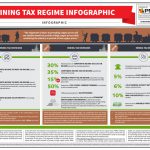Tax Holidays in Mining Zambia: A Double-Edged Sword

You and me, let’s talk about tax holidays in mining Zambia. Zambia, a country rich in mineral resources, has been trying to encourage foreign investment in its mining sector. One of the strategies it has employed is by offering tax holidays to mining companies. But, what exactly are tax holidays, and how do they impact the Zambian economy?
What are Tax Holidays?
Tax holidays are a form of tax incentive where a government waives or reduces taxes for a certain period. In the case of tax holidays in mining Zambia, the government has offered these incentives to attract foreign investment in the mining sector. The idea is to encourage mining companies to set up operations in Zambia and create jobs, stimulate economic growth, and increase government revenue in the long run.
Tax Holidays in Mining Zambia: A Short History
Tax holidays in mining Zambia date back to the 1990s when the government introduced the Mines and Minerals Act. This act allowed for the granting of tax holidays to mining companies as a way to attract foreign investment. Since then, several mining companies have taken advantage of these incentives, including Vedanta Resources, Glencore, and First Quantum Minerals.
Benefits of Tax Holidays in Mining Zambia
Tax holidays in mining Zambia have several benefits, including:
Increased Foreign Investment
Tax holidays in mining Zambia have attracted significant foreign investment in the mining sector. This has led to the creation of jobs, stimulation of economic growth, and increased government revenue. According to the Zambia Chamber of Mines, the mining sector has contributed significantly to the country’s GDP, with copper mining alone accounting for over 70% of the country’s foreign exchange earnings.
Improved Infrastructure
Tax holidays in mining Zambia have also led to improved infrastructure development. Mining companies have invested heavily in roads, railways, and other infrastructure, which has improved the lives of locals and facilitated the transportation of goods.
Technology Transfer
Tax holidays in mining Zambia have also facilitated technology transfer. Mining companies have brought in new technologies and skills, which have improved the efficiency and productivity of the mining sector.
Drawbacks of Tax Holidays in Mining Zambia
However, tax holidays in mining Zambia also have some drawbacks, including:
Lost Revenue
Tax holidays in mining Zambia have resulted in significant lost revenue for the government. According to the Zambia Revenue Authority, the government lost an estimated K1.5 billion in revenue due to tax holidays granted to mining companies between 2015 and 2017.
Inequity
Tax holidays in mining Zambia have also created inequity. While mining companies enjoy tax holidays, other businesses are required to pay taxes, creating an uneven playing field.
Environmental Concerns
Tax holidays in mining Zambia have also raised environmental concerns. With the lure of tax holidays, mining companies have been accused of neglecting environmental and social responsibilities.
Tax Holidays in Mining Zambia: The Way Forward
So, what’s the way forward for tax holidays in mining Zambia? Here are a few suggestions:
Review Tax Holiday Policy
The government needs to review the tax holiday policy to ensure that it is not too generous and is aligned with the country’s development goals.
Introduce Performance-Based Incentives
The government can introduce performance-based incentives that reward mining companies for their social and environmental performance.
Increase Transparency
The government needs to increase transparency in the granting of tax holidays. This can be achieved by publishing the names of mining companies that have been granted tax holidays and the terms of the agreements.
Tax Holidays in Mining Zambia: Conclusion
Tax holidays in mining Zambia are a double-edged sword. While they have attracted significant foreign investment and stimulated economic growth, they have also resulted in lost revenue and created inequity. The government needs to review the tax holiday policy to ensure that it is aligned with the country’s development goals. By introducing performance-based incentives and increasing transparency, the government can ensure that tax holidays in mining Zambia benefit both the economy and the people.
Tax Holidays in Mining Zambia: The Final Word
Tax holidays in mining Zambia are a complex issue that requires careful consideration. While they have their benefits, they also have their drawbacks. As we conclude, let’s remember that tax holidays in mining Zambia are a tools that can be used to stimulate economic growth, but they must be used judiciously.
<